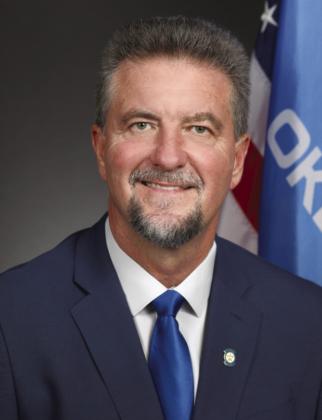We're wrapping up interim studies at the Capitol. I recently participated in several.
Our House Utilities Committee met simultaneously with the Senate Energy and Telecommunications Committee last week, discussing right of first refusal of electric companies and performance based rates. Both ROFR and PBR are issues highly contested by groups within the energy industry, so it was a lively discussion.
Legislators are trying to determine if rights of first refusal might benefit the average Oklahoma electric customer. According to those who testified in the study, Oklahoma was a right of first refusal state until the Federal Energy Regulatory Commission in 2011 gave states an option of retaining that process for the construction of power distribution lines or implementing a competitive bidding process open to any qualified company.
Oklahoma now has a bifurcated process because of House Bill 1932, which passed in 2013. Now, lower-voltage distribution lines run under right of first refusal and higher voltage lines are subject to competitive bidding. Large electric utilities such as OG&E and PSO would like Oklahoma to return to being a right of first refusal state for all power distribution lines. Private companies and those involved only in distribution such as OMPA would not. We must assess what is best for our ratepayers.
On the issue of performance based rates for electric providers, we learned these rates look at accounting and finance data annually vs. general rate cases, which are heard every several years. The data leads to decisions on rate increases, decreases or refunds to customers.
We were told that reviewing the financial information annually would lead to smaller adjustments. Again, it will be incumbent upon us to determine what is best for the ratepayer. We were urged by one of the state's largest power providers to approve Senate Bill 694, which proposes a one-year pilot program at the Corporation Commission utilizing the process of performance based rates so we can further study the matter.
Also this week, I participated in a Senate interim study considering the possibilities of nuclear energy in Oklahoma. As a state rich in petroleum resources, we have long enjoyed the benefit of cheap, clean burning natural gas for a majority of our electric generation. Our federal government has adopted standards that threaten the longterm viability of petroleum generation along with coal-fired plants. With our state's 'all of the above' approach to energy, it is time to consider nuclear as a future source as well.
We studied the pros and cons of nuclear energy as a potential clean, reliable and sustainable source of power for Oklahoma. Proponents detailed the substantial economic growth they believe this sector would generate for the state. We heard from experts at the Nuclear Energy Institute as well as other stakeholders and policymakers how nuclear energy reduces greenhouse gas emissions. Plants today are built to the highest standards of operational safety, security and emergency preparedness. We were told how comprehensive safety procedures and stringent regulations keep plants and neighboring communities safe and how nuclear is more reliable than intermittent sources such as wind, hydroelectric or solar. Although we have some hydroelectric generation in Oklahoma, it is not a possibility in our part of the state where water is very limited.
Again, this is all very interesting information. Serving on the Utilities Committee will give me a front row seat on these very important issues coming our way. I will consider and support what is best for the citizens of Oklahoma for the future.
Please remember, if I can help you with something, do not hesitate to reach out. You also can follow regular updates on my House Facebook page or call or email anytime at (405) 557-7407 o r Mike.Dobrinski@okhous e.gov.
In your service, Mike Dobrinski

